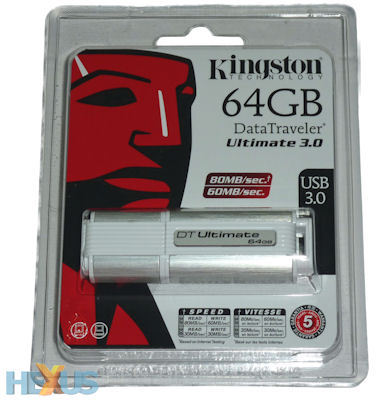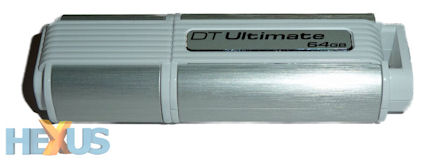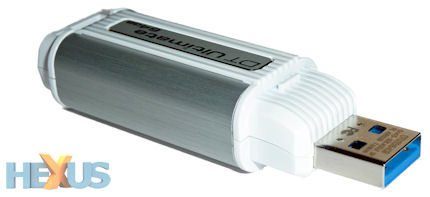Raising the bar
USB 3.0 mattersThe nascent USB 3.0 specification has been gaining traction throughout much of 2010. The SuperSpeed connection's potential lies in providing potentially 10x the bandwidth of incumbent USB 2.0 - near 400MB/s under ideal conditions - and it's a very good fit for external components that need a fast interconnect to the system.
USB 3.0 is a two-way street: one needs a compliant external device and the processing chip on the PC or notebook. These chips are often provided by NEC and rolled into premium motherboards or by add-in PCIe cards. What this really means is that the super-speedy connection won't gain widespread adoption until Intel and AMD integrate it into their next-generation chipsets - making it, like USB 2.0, ubiquitous.
The real benefits of USB 3.0 will be felt when used in devices that swamp USB 2.0's 30MB/s real-world data-transfer ceiling. External hard-drives and large-capacity USB sticks come to mind. Imagine filling a 64GB stick when limited to 30MB/s, even though the pen-drive's flash chips can run significantly faster.
Kingston reckons that USB 3.0 makes implicit sense for folk who need to move large files around in a portable format. This is why it has launched the Data Traveler Ultimate 3.0 range of USB pen-drives. Available in 16GB, 32GB and 64GB capacities, we take a look at the range-topping model.
The packaging draws immediate attention to the increase in speeds made possible by switching from USB 2.0 to USB 3.0. Kingston reckons the Data Traveler Ultimate is good for reading at 80MB/s and writing at 60MB/s, or over twice the speed of a USB 2.0-connected drive. Of course, and it's worth mentioning again, users looking to take advantage of the increased bandwidth will need a PC or laptop equipped with a USB 3.0 controller.
Kingston also throws in a double-ended USB extension cable, presumably for host machines that may not have full-power USB ports. The package is backed up by the company's comprehensive five-year warranty.
Kingston's DT Ultimate is a little larger and thicker than most regular USB sticks, as it has to fit 64GB of flash memory and a USB 3.0 chip inside the well-constructed casing. In use, however, the drive gets rather warm to the touch, so much so that the casing's temperature hovers around 33°C when simply connected, rising to over 40°C when transferring files. If nothing else, it makes for a good hand-warmer in winter.
The rear of the pen-drive has a blue LED that remains lit at all times. There's a steady blue glow when plugged in, changing to an intermittent pattern when transferring data.
Remove the cap and keep it safe by plugging into the other side, we see that Kingston opts for a blue-coloured connector, in keeping with the scheme adopted by USB 3.0.
Priced at around £140 for this 64GB model, the Data Traveler Ultimate attracts around a £60 premium over USB 2.0-only drives of the same capacity. Let's now investigate whether the additional outlay is worth it with a look at benchmark results.












